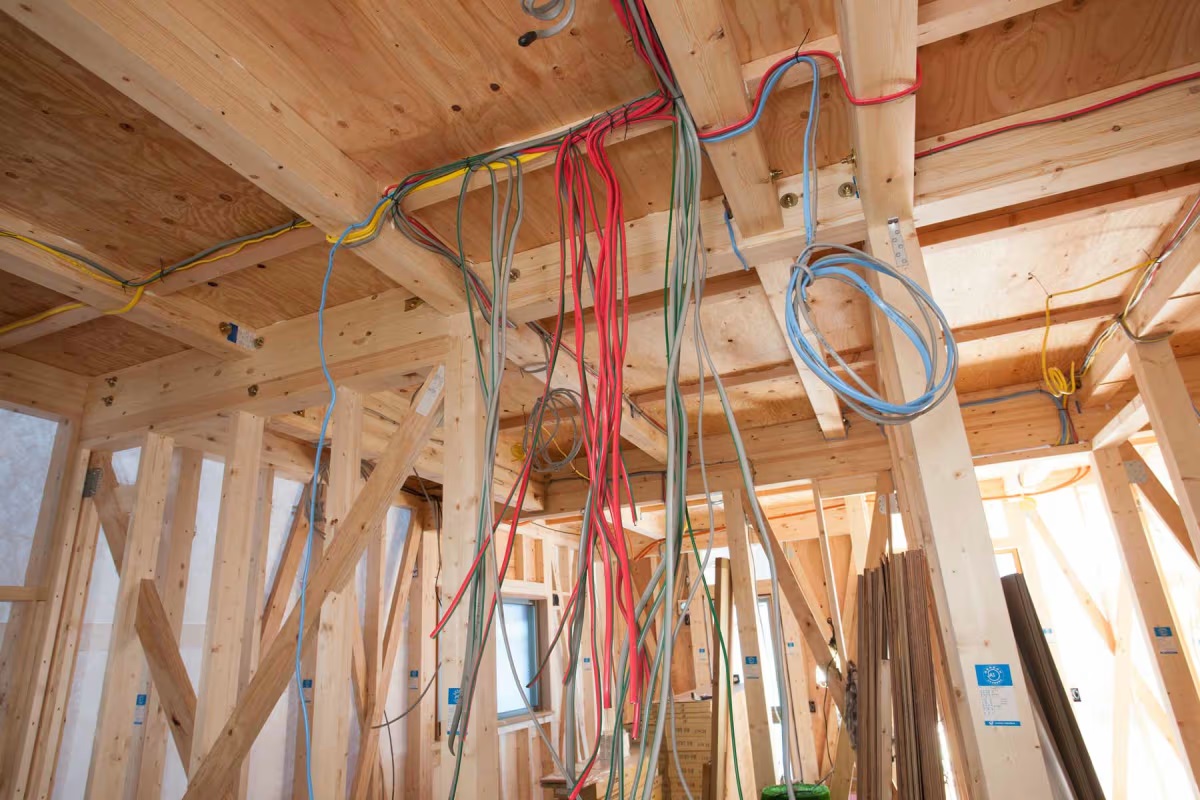

Articles
How Much Does It Cost To Wire A Basement
Modified: January 6, 2024
Discover the average cost of wiring a basement and get expert tips on saving money with our comprehensive articles on electrical installations.
(Many of the links in this article redirect to a specific reviewed product. Your purchase of these products through affiliate links helps to generate commission for Storables.com, at no extra cost. Learn more)
Introduction
Wiring a basement is an essential step in transforming a raw, unfinished space into a functional and comfortable living area. Whether you plan to create a home office, a recreation room, or an additional living space, proper wiring is crucial for powering lights, outlets, appliances, and other electrical devices. However, before embarking on this project, it is essential to understand the process and factors that can impact its cost.
In this article, we will delve into the intricacies of basement wiring and provide insights into the average cost of undertaking such a project. We will also explore the pros and cons of DIY wiring versus hiring a professional, as well as offer tips for saving money along the way.
Undertaking basement wiring involves more than just running electrical wires throughout the space. It requires careful planning, adherence to local electrical codes, and an understanding of the different components and materials involved. By following the correct procedures and using quality materials, you can ensure the safety and functionality of your basement’s electrical system.
Before delving into the details, it is important to note that the cost of wiring a basement can vary significantly depending on various factors. These factors include the size of the space, the complexity of the wiring layout, the type of wiring materials used, and whether or not you choose to hire a professional electrician. Therefore, it’s crucial to have a clear understanding of these elements when estimating the overall cost of the project.
Key Takeaways:
- The cost of wiring a basement can range from $1,500 to $5,000 or more, depending on factors such as size, complexity, materials, and professional labor. Proper planning, research, and obtaining multiple quotes are crucial for budgeting effectively.
- When deciding between DIY wiring and hiring a professional, consider factors such as cost, expertise, and safety. Prioritize safety, adhere to local electrical codes, and make informed decisions to create a functional and safe living space for your family.
Read more: How Much Does A Walkout Basement Cost
Understanding the Wiring Process
Wiring a basement involves several key steps that must be followed for a successful installation. Here is a breakdown of the wiring process:
- Plan and Design: Before starting any wiring work, it is essential to create a detailed plan and design for your basement’s electrical system. This includes determining the location of outlets, switches, and lights, as well as mapping out the circuitry and considering future electrical needs.
- Obtain Permits: In many jurisdictions, a permit is required for basement electrical work. Check with your local building department to determine the specific permits and inspections necessary for your project.
- Install Wiring: The next step is to install the wiring. This involves running electrical cables through walls, ceilings, and floors, positioning outlets and switches, and connecting all the necessary components. It is crucial to follow electrical codes and guidelines to ensure proper installation.
- Connect to Circuit Breaker Panel: Once the wiring is in place, it needs to be connected to the circuit breaker panel. Each circuit should be properly labeled to easily identify what it powers.
- Test and Inspect: After completing the wiring, it is essential to test the electrical system to ensure it is functioning correctly and safely. A professional inspection may also be required to verify compliance with electrical codes.
- Finalize and Cover: Once all testing and inspections are done, the wiring can be finalized and covered with wall finishes, such as drywall or paneling.
It’s important to note that basement wiring can be a complex and technical process, especially if you are not experienced in electrical work. In such cases, it is recommended to hire a licensed electrician who has the expertise to navigate the intricacies of the wiring process and meet the necessary safety standards.
Factors Affecting the Cost of Basement Wiring
Understanding the factors that influence the cost of basement wiring can help you estimate your project’s expenses more accurately. Here are the key factors that can impact the overall cost:
- Size of the Basement: The size of your basement plays a significant role in determining the cost of wiring. Larger basements require more wiring materials, outlets, and circuit breakers, which can increase the overall expenses.
- Complexity of the Wiring Layout: The complexity of the wiring layout can also affect the cost. If your basement has a more intricate design with multiple rooms, separate circuits, or specialized electrical needs, it may require more labor and materials, thus increasing the overall price.
- Type of Wiring Materials: The type of wiring materials you choose can greatly impact the cost. Copper wiring is the most commonly used due to its durability and conductivity, but it is also more expensive than aluminum wiring. Additionally, the gauge and quality of the wiring will also affect the price.
- Number of Outlets and Switches: The number of outlets and switches you plan to install in your basement can influence the overall wiring cost. Each additional outlet or switch will require additional wiring and installation work.
- Inclusion of Specialized Features: If you intend to include specialized features in your basement, such as recessed lighting, dimmer switches, or home theater wiring, they will add to the overall cost. These features often require additional wiring and may require the expertise of specialized electricians.
- Accessibility: The accessibility of your basement can impact the cost of wiring. If your basement has limited access or if there are obstacles that hinder the installation process, it may require additional labor and time, thus increasing the overall expenses.
- Location: The location of your property can also affect the cost of basement wiring. Labor and material costs can vary depending on the region, city, or neighborhood you reside in. It’s important to consider local market rates when estimating project expenses.
Keep in mind that these factors are interrelated and can influence each other. For example, a larger basement with a complex layout and specialized features will likely require more wiring materials and labor, thus increasing the overall cost.
By taking these factors into account and consulting with a professional electrician, you can develop a better understanding of the anticipated expenses for wiring your basement.
Materials Needed for Basement Wiring
When it comes to basement wiring, it is important to have the necessary materials on hand to ensure a smooth and efficient installation. Here are the key materials you will typically need for basement wiring:
- Electrical Wire: The most crucial component of any wiring project is the electrical wire. Commonly used types include non-metallic sheathed cable (NM), also known as Romex, and armored cable (AC). The wire gauge will depend on the electrical load requirements and local electrical codes.
- Cable Staples or Straps: Cable staples or straps are used to secure the electrical wire along the framing members to prevent it from moving or being damaged. These are typically made of plastic or metal and come in various sizes to accommodate different wire gauges.
- Outlet Boxes: Outlet boxes are installed in the walls or ceilings to provide a secure mounting point for outlets, switches, and other electrical devices. They are available in various sizes and types, including single-gang and double-gang boxes.
- Switches and Outlets: These components are essential for controlling lights and powering electrical devices. They come in different styles and configurations, including single-pole switches, three-way switches, and standard outlets.
- Circuit Breaker Panel: The circuit breaker panel is responsible for distributing electricity throughout your basement. It houses the circuit breakers or fuses that protect each electrical circuit from overloading. It is essential to choose a panel with enough slots to accommodate your basement’s electrical needs.
- Wire Connectors: Wire connectors are used to join electrical wires together securely. They come in various types, including wire nuts, crimp connectors, and push-in connectors, and ensure proper electrical connections and safety.
- Grounding Materials: Proper grounding is essential for electrical safety. Grounding materials, such as grounding rods, grounding clamps, and grounding conductors, ensure that electrical faults are safely redirected to the ground.
- Junction Boxes: Junction boxes are used for splicing and protecting electrical connections. They provide a safe enclosure for wire splices and help maintain the integrity of the electrical system.
- Tools: Various tools are required for basement wiring, including wire cutters, wire strippers, screwdrivers, electrical tape, pliers, and a voltage tester. These tools ensure that the wiring installation is done accurately and safely.
It is crucial to use quality materials that meet local electrical codes and safety standards. Consulting with a professional electrician can help you determine the specific materials needed for your basement wiring project.
Average Cost of Wiring a Basement
The cost of wiring a basement can vary depending on several factors, such as the size of the basement, complexity of the wiring layout, materials used, and whether you hire a professional or opt for a DIY approach. It is important to note that the figures provided here are estimates and can vary based on your location and specific project requirements.
On average, the cost of wiring a basement can range from $1,500 to $5,000 or more. This estimate includes the cost of materials, labor, and any necessary permits or inspections. Here is a breakdown of the potential costs:
- Materials: The cost of materials can vary depending on the size of the basement and the type of wiring materials chosen. Budgeting around $500 to $2,000 for materials is a reasonable estimate.
- Labor: If you choose to hire a professional electrician, labor costs will be a significant portion of the overall expenses. Electricians typically charge an hourly rate, which can range from $50 to $100 or more, depending on your location and the complexity of the job. The total labor cost will depend on the number of hours required for the project.
- Permits and Inspections: Some jurisdictions require permits and inspections for basement electrical work, which can incur additional costs. Permit fees typically range from $50 to $200, while inspection fees may vary. Be sure to check with your local building department for the specific costs in your area.
It’s important to note that if your basement requires additional features or specialized electrical work, such as recessed lighting or a home theater setup, the cost may increase accordingly. These features require extra materials and labor, as well as the expertise of specialized electricians.
If you choose to take the DIY route, you can significantly reduce the cost of wiring a basement. However, it is essential to possess the necessary knowledge and skills to ensure a safe and effective installation. Keep in mind that DIY wiring may still require permits and inspections, and it is crucial to follow local electrical codes to maintain safety standards.
Consulting with multiple electricians and obtaining detailed quotes can help you estimate the cost more accurately. Be sure to compare prices, credentials, and reviews before making a decision.
Overall, it is essential to budget accordingly and prioritize electrical safety when planning the wiring of your basement.
When wiring a basement, the cost will depend on factors such as the size of the space, the type of wiring needed, and the complexity of the project. It’s best to consult with a licensed electrician to get an accurate estimate for your specific needs.
Read more: How Much Does It Cost To Drywall A Basement
DIY vs Hiring a Professional
When it comes to wiring a basement, one of the key decisions you’ll need to make is whether to tackle the project yourself or hire a professional electrician. Both options have their advantages and considerations. Let’s explore the pros and cons of each:
DIY Wiring:
Pros:
- Cost Savings: One of the main advantages of DIY wiring is the potential cost savings. By eliminating labor costs, you can significantly reduce the overall expenses of the project.
- Sense of Achievement: Completing a DIY wiring project can provide a great sense of accomplishment and pride in your abilities to take on a complex task.
- Flexibility: When doing the wiring yourself, you have complete control over the project timeline and can work at your own pace.
Considerations:
- Skill and Knowledge: Wiring a basement requires a solid understanding of electrical systems and a working knowledge of safety codes and regulations. If you lack the necessary expertise, DIY wiring can pose risks and lead to safety hazards.
- Time and Effort: DIY wiring can be time-consuming and labor-intensive, especially if you are new to electrical work. Proper planning, research, and execution are essential to ensure a successful and safe installation.
Hiring a Professional:
Pros:
- Expertise and Experience: Hiring a professional electrician ensures that your basement wiring is done by a trained and experienced individual who is well-versed in electrical codes and safety standards.
- Time and Efficiency: Professionals can complete the wiring project more efficiently and in a shorter timeframe due to their expertise and access to specialized tools and equipment.
- Peace of Mind: With a licensed electrician handling the project, you can have peace of mind knowing that the wiring is done correctly and meets all safety requirements.
Considerations:
- Cost: Hiring a professional electrician will involve additional costs for labor. However, these costs may be offset by the potential savings in time, effort, and avoidance of potential mistakes.
- Communication: Clear and effective communication with the electrician is important to ensure that your specific needs and preferences are met during the installation process.
- Contractor Selection: It’s essential to do your research and choose a reputable and licensed electrician with positive reviews and a track record of successful projects.
Deciding whether to DIY or hire a professional comes down to your skill level, comfort with electrical work, and the complexity of the project. If you have previous experience or feel confident in your abilities, DIY wiring might be a feasible option. However, if you are unsure or lack the necessary expertise, it is highly recommended to hire a professional electrician to ensure a safe and efficient installation.
Ultimately, the choice between DIY and professional wiring will depend on your individual circumstances, budget, and personal preferences. Whichever route you choose, prioritize safety and adherence to local electrical codes.
Tips for Saving Money on Basement Wiring
Wiring a basement can be a significant investment, but there are ways to minimize costs without compromising safety or quality. Here are some tips to help you save money on your basement wiring project:
- Plan and Research: Before beginning any work, take the time to plan your basement wiring project thoroughly. This includes determining the exact layout, identifying the specific electrical needs, and researching the most cost-effective materials and techniques.
- Obtain Multiple Quotes: When hiring a professional electrician, obtain multiple quotes from reputable contractors. Compare prices, credentials, and reviews to ensure you are getting the best value for your money. Don’t forget to inquire about any possible discounts or package deals.
- Opt for Copper Wiring: While copper wiring is generally more expensive than aluminum, it offers better conductivity and longevity. Investing in quality copper wiring can save you money in the long run by minimizing the need for repairs and replacements.
- Source Materials Smartly: Look for sales and discounts on electrical materials and purchase them in bulk whenever possible. Consider checking with local suppliers, online marketplaces, or even salvage yards for discounted or second-hand materials that are still in good condition.
- Consider DIY Within Your Skillset: If you have the necessary knowledge and experience, consider doing some of the wiring work yourself. However, be cautious not to take on tasks that are beyond your capabilities, as this could lead to mistakes and safety hazards.
- Reuse Existing Wiring, If Possible: If your basement already has existing wiring in good condition, consider reusing it instead of installing new wires. This can save you both time and money. However, ensure that the existing wiring meets safety standards and is appropriate for your intended electrical needs.
- Optimize Outlet and Switch Placement: Planning the placement of outlets and switches strategically can help minimize the amount of wiring required. Consider grouping outlets together in close proximity to reduce the length of wiring needed.
- Energy-Efficient Lighting: Choose energy-efficient lighting options, such as LED bulbs, which consume less electricity and have a longer lifespan. While they may have a higher upfront cost, they will save you money on energy bills in the long run.
- Do Not Cut Corners on Safety: While it is important to save money, never compromise on safety. Adhere to all local electrical codes, use proper grounding techniques, and ensure all connections are secure and properly insulated. Any shortcuts in safety can lead to costly repairs or, worse, electrical hazards.
By implementing these cost-saving strategies and being mindful of your choices, you can successfully wire your basement while keeping your expenses under control. Remember that it’s crucial to strike a balance between saving money and maintaining the safety and quality of the electrical system.
Read more: How Much Does It Cost To Remodel A Basement
Conclusion
Wiring a basement is a crucial step in transforming an unfinished space into a functional and comfortable living area. Understanding the wiring process, the factors that affect the cost, and the materials needed is essential for planning and budgeting your project effectively.
Whether you choose to tackle the wiring yourself or hire a professional electrician, it’s important to weigh the pros and cons of each option. DIY wiring can save you money but requires a solid understanding of electrical systems and adherence to safety codes. Hiring a professional ensures expertise, efficiency, and compliance with regulations but comes with additional labor costs.
To save money on your basement wiring project, proper planning, research, and obtaining multiple quotes are key. Opting for copper wiring, sourcing materials strategically, and considering reusing existing wiring can also help minimize expenses. Additionally, optimizing outlet and switch placement and choosing energy-efficient lighting can help reduce the amount of wiring needed and save on energy costs in the long run.
Remember, safety should never be compromised when it comes to electrical work. Be sure to adhere to local electrical codes, use quality materials, and make secure connections. Cutting corners on safety can lead to costly repairs and, more importantly, put you and your household at risk.
Ultimately, the decision to wire a basement and how to approach it depends on your individual circumstances and comfort level. Whether you choose to embark on a DIY project or hire a professional, prioritize safety, take your time, and ensure that the wiring is done correctly to create a functional and safe space for your family to enjoy.
By following these guidelines and making informed decisions, you can successfully wire your basement while striking a balance between affordability and quality.
Frequently Asked Questions about How Much Does It Cost To Wire A Basement
Was this page helpful?
At Storables.com, we guarantee accurate and reliable information. Our content, validated by Expert Board Contributors, is crafted following stringent Editorial Policies. We're committed to providing you with well-researched, expert-backed insights for all your informational needs.

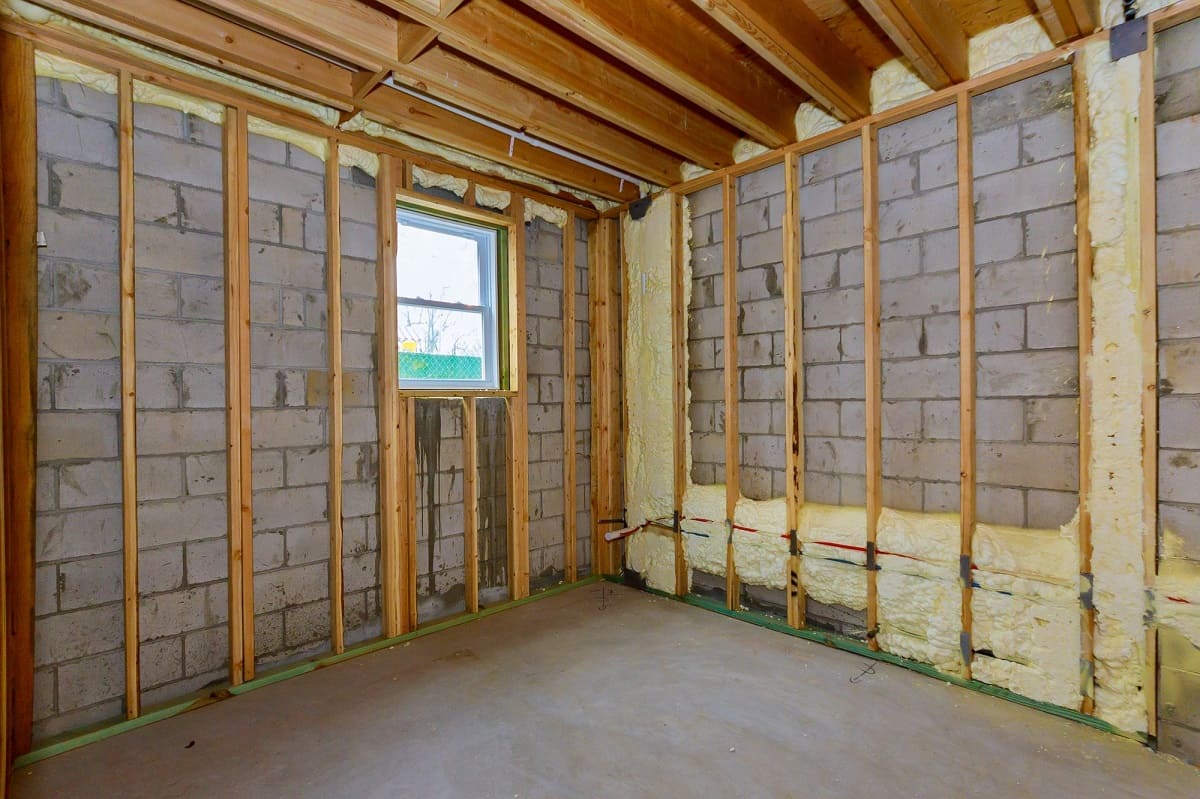
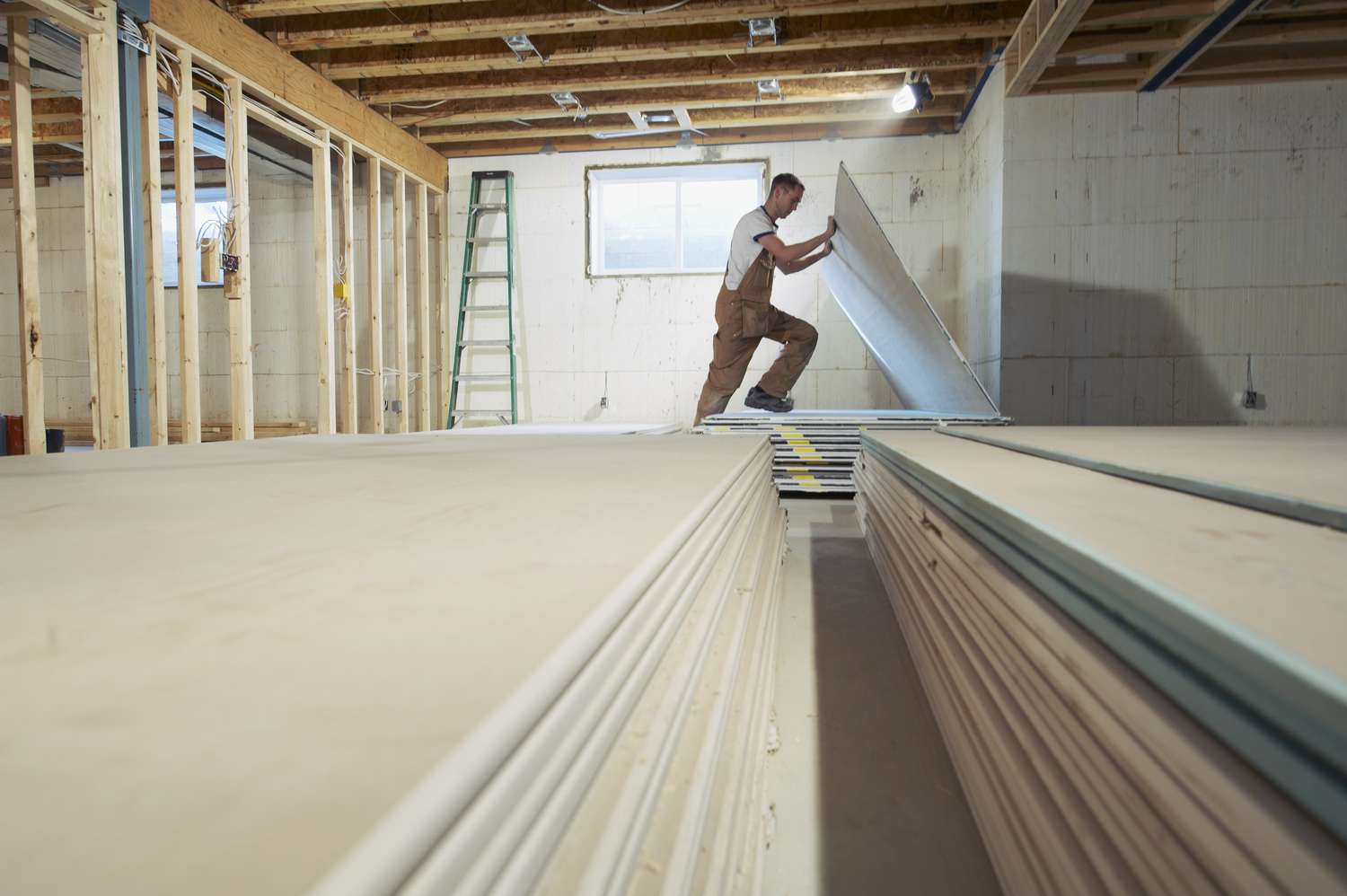
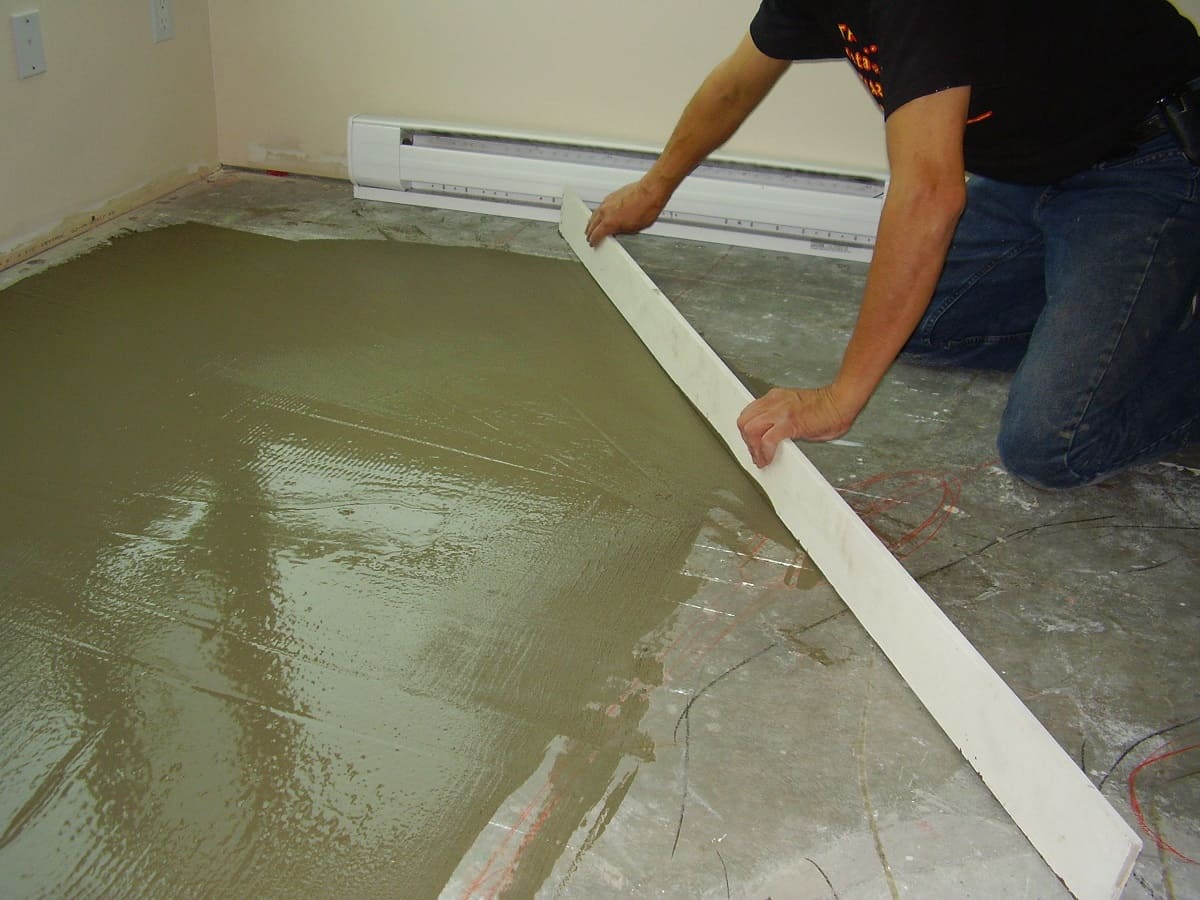
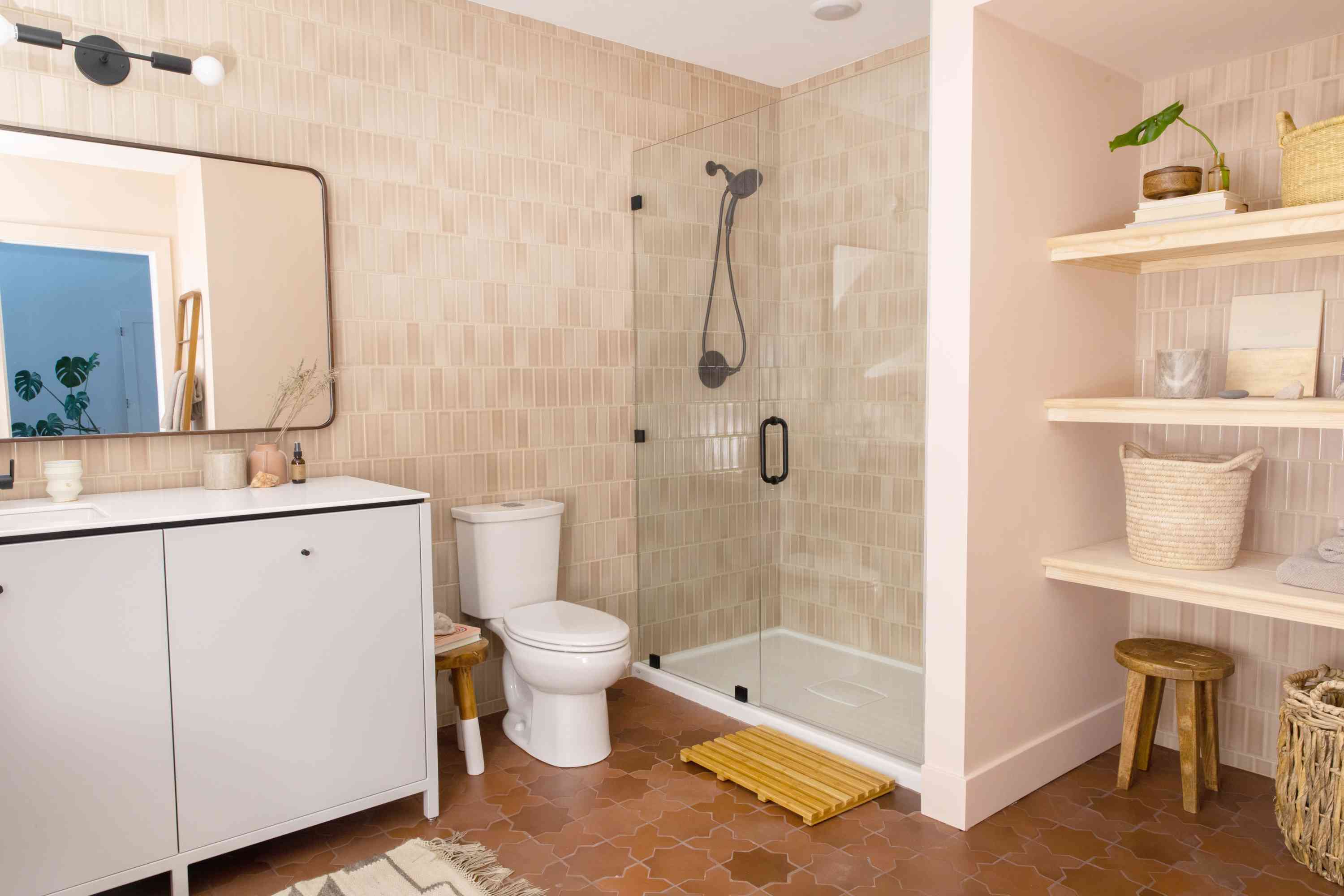
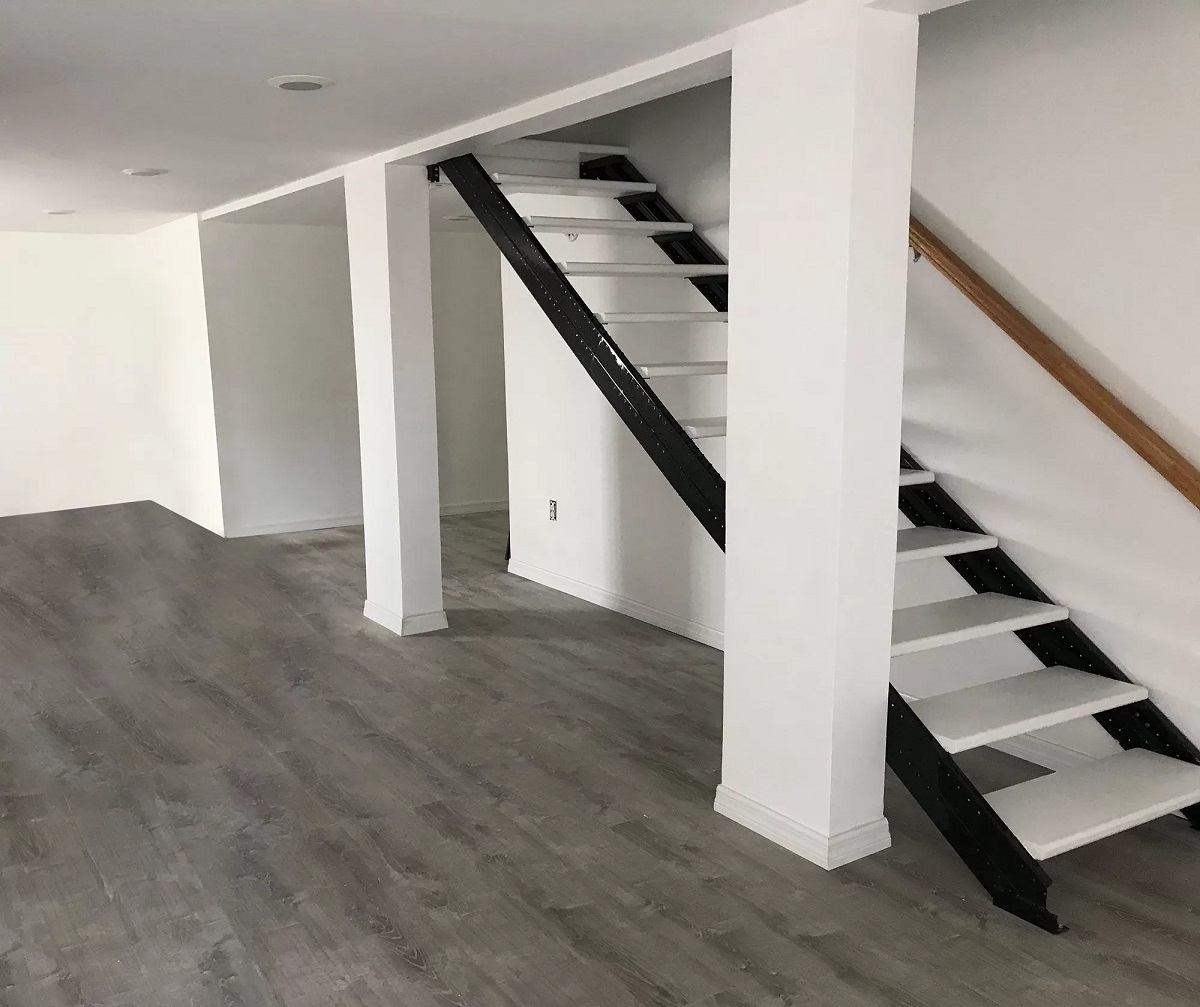
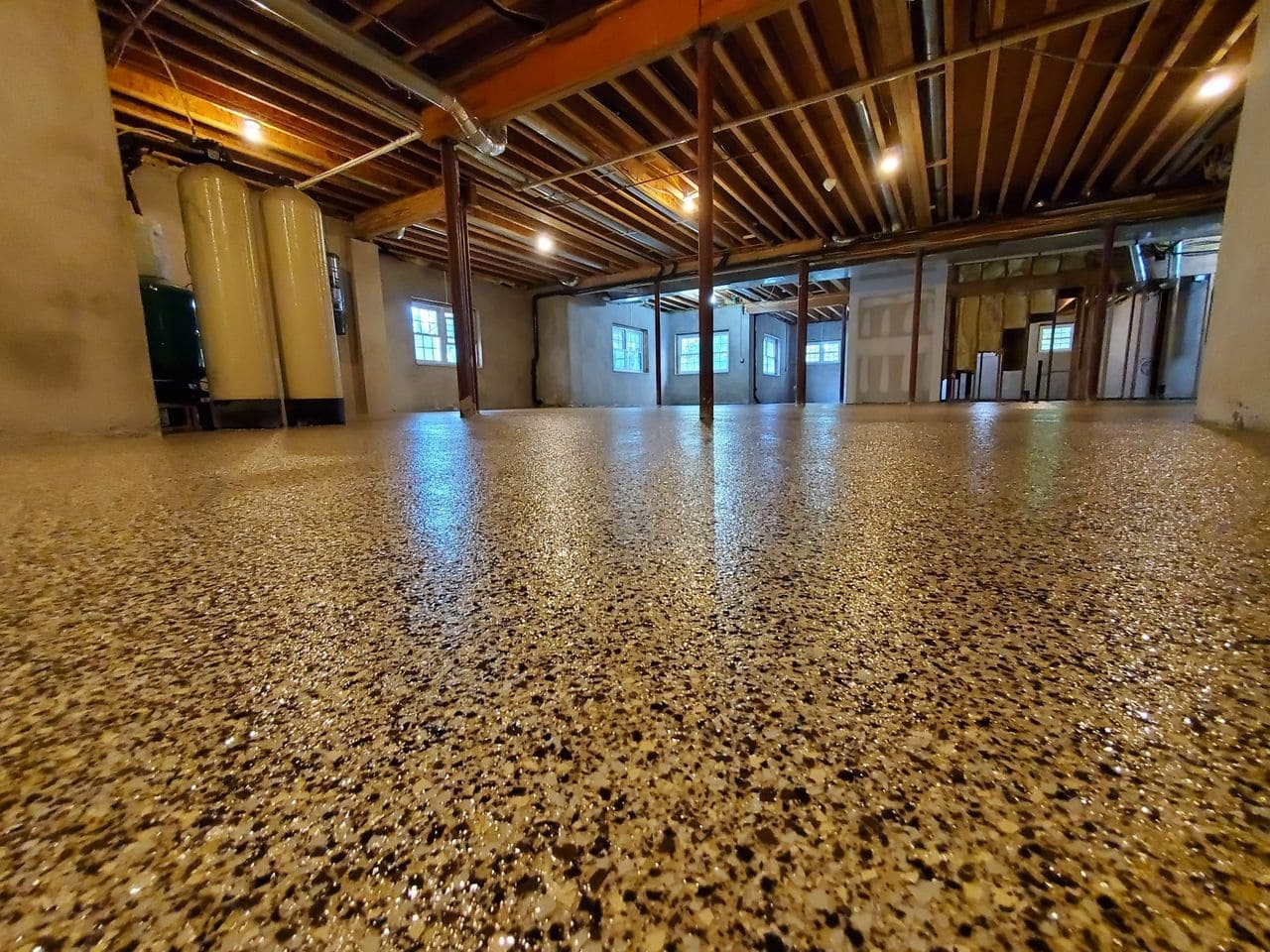

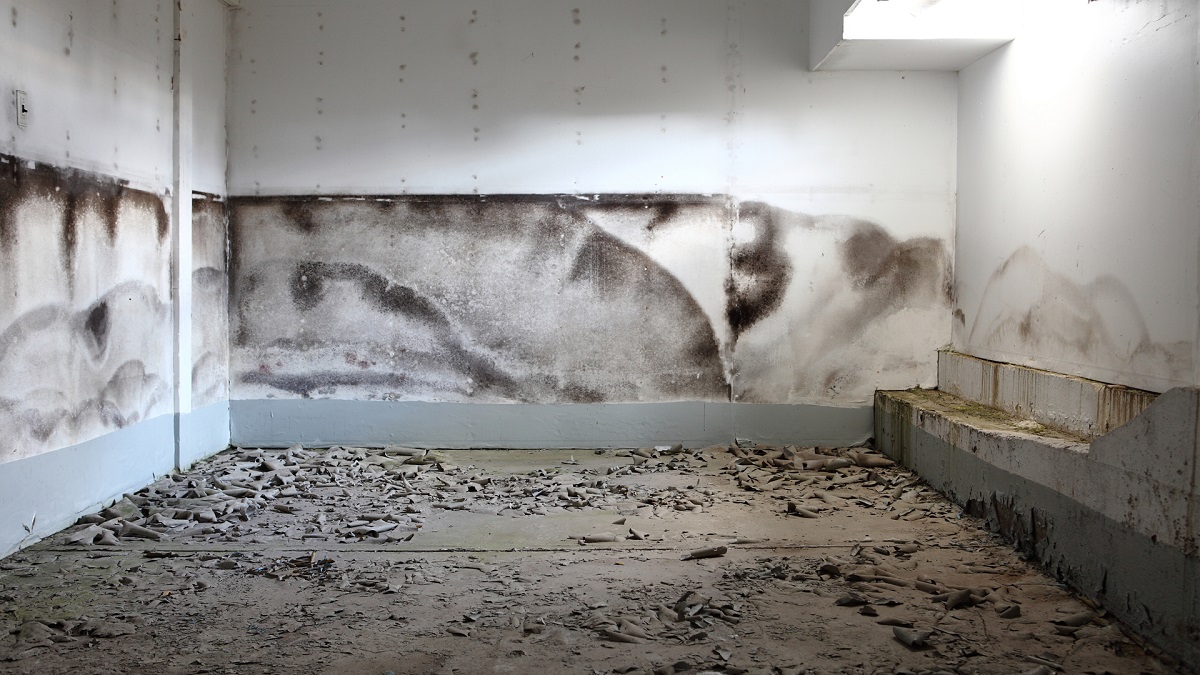
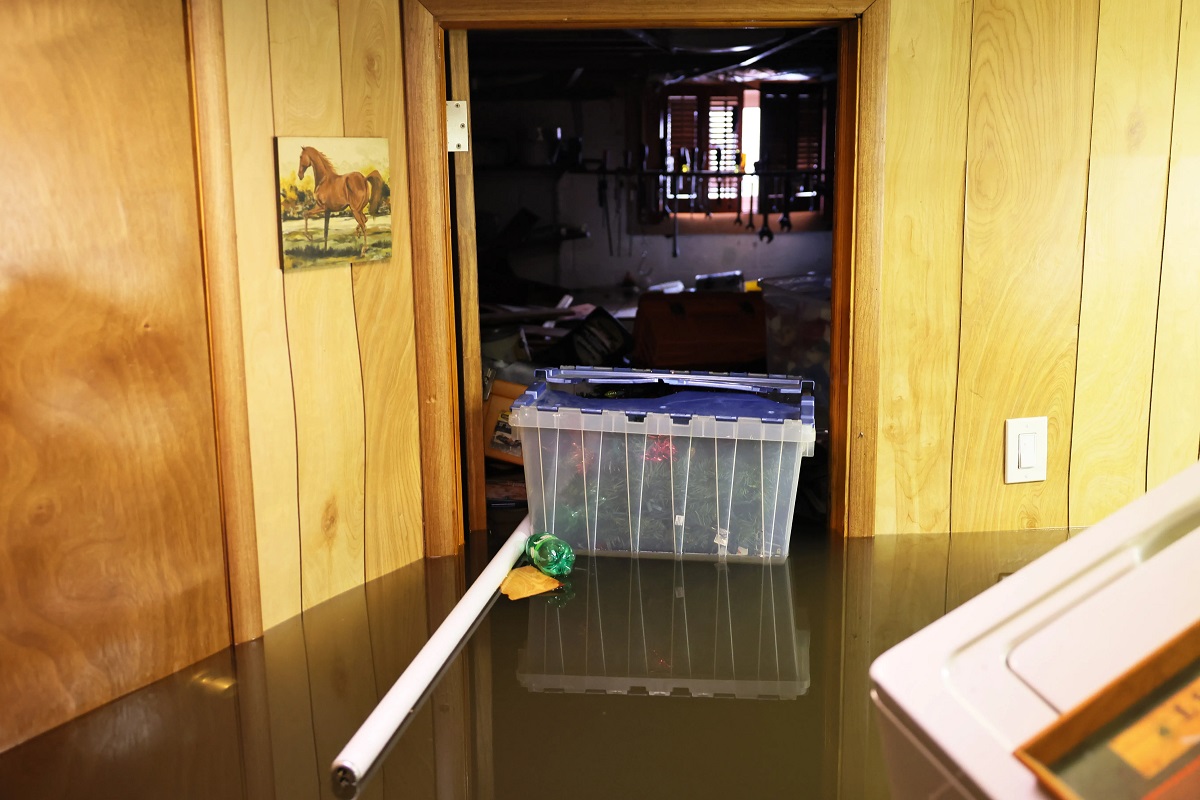

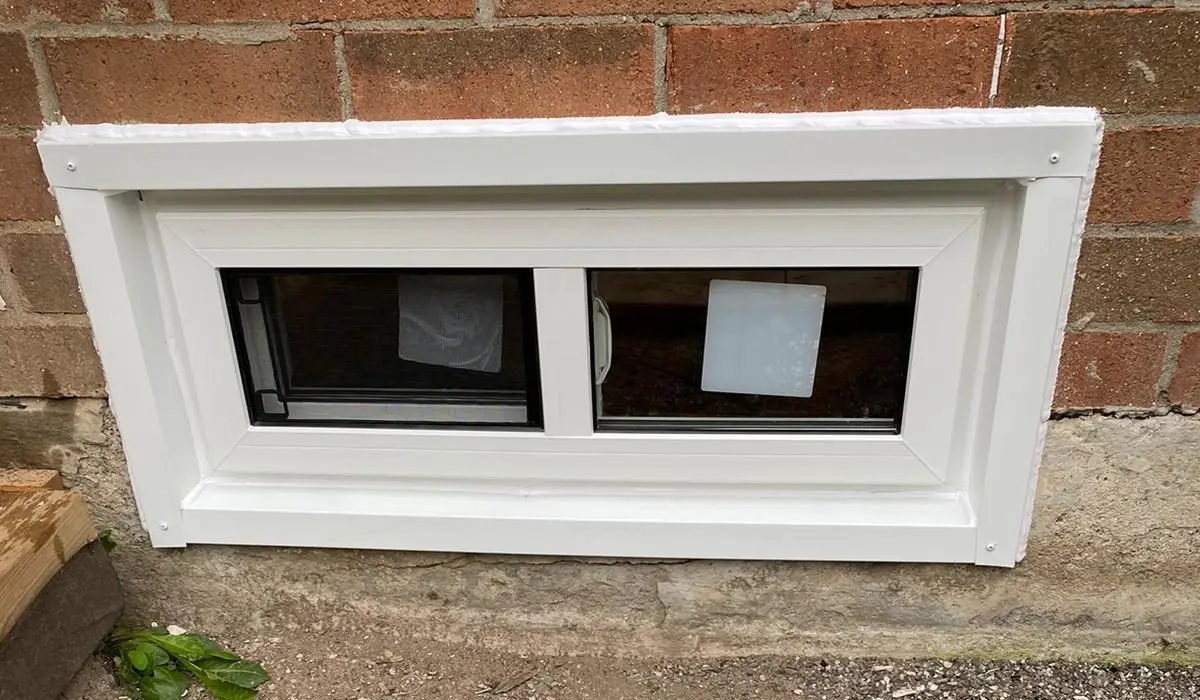
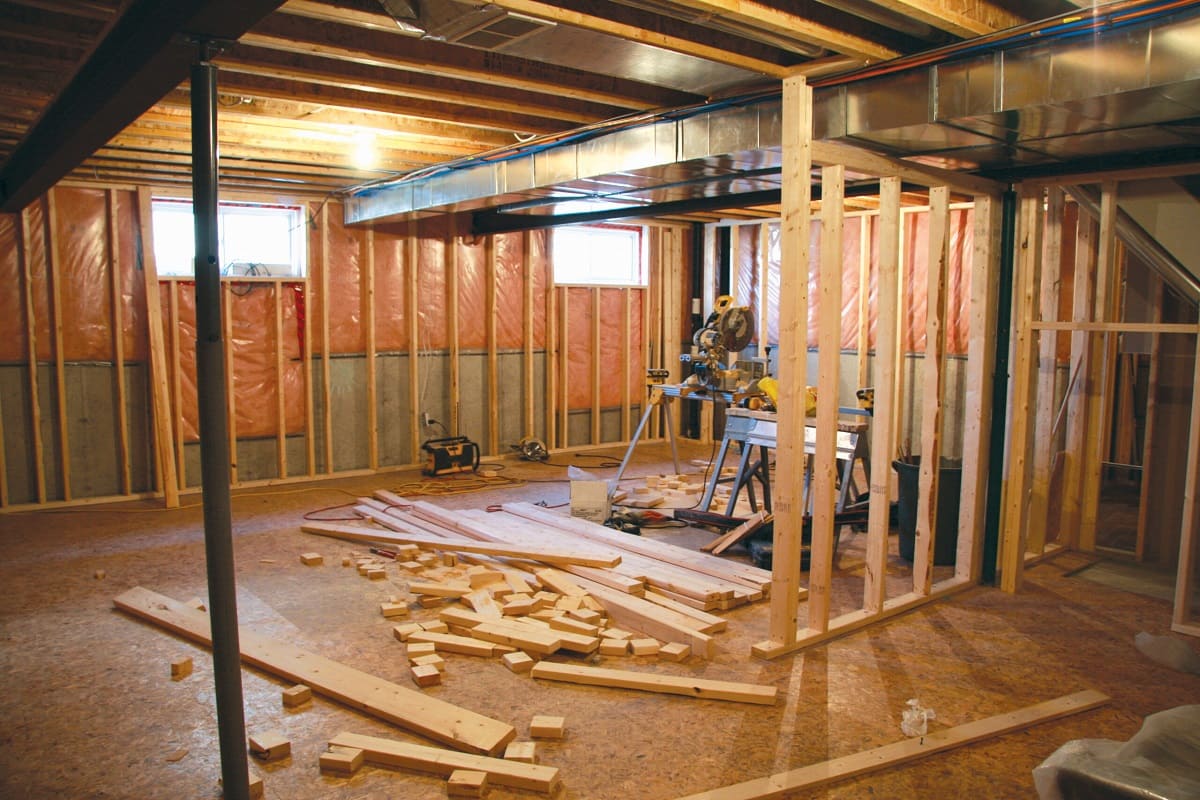

0 thoughts on “How Much Does It Cost To Wire A Basement”